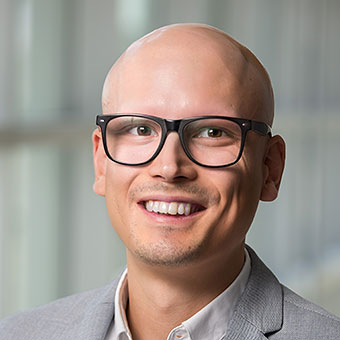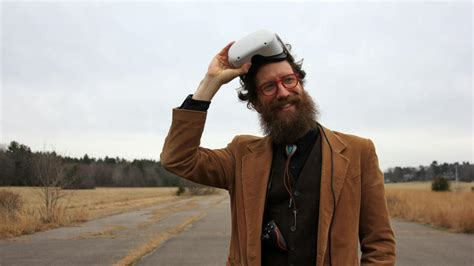Making Makers: Centers for Innovative Learning and Research
September 29th, 2021
12:00 p.m. – 1:00 p.m. (via Zoom)
What is the role of a “makerspace” in the Liberal Arts? How have institutions adapted the form of maker labs to meet and enhance their unique needs for learning and research? How can the model of making and fabrication be leveraged to enhance openness, equity and inclusion across the Liberal Arts curriculum? Ian Roy (Brandeis University) and Jordan Tynes (Wellesley College) will discuss their experiences developing programs for scholarly innovation through technology at their individual institutions. These programs support an important academic mindset that students and faculty develop while working in design and fabrication labs. They will share strategies for organizational support and instructional programs that help create the physical and theoretical space for academic communities to engage in innovation & entrepreneurship.

Ian Roy is the Director for Research Technology and Innovation in Brandeis University’s Library. He is also the Founding Head of the Brandeis MakerLab and an Adjunct Professor at the Brandeis International Business School – and a Lecturer in the Anthropology Department.
His group Research Technology and Innovation manages the 3 public Makerspaces in the Brandeis Library: The MakerLab, The Automation Lab, and the Digital Humanities Lab. His team works with researchers to overcome the technological hurdles they encounter in their workflows, top to bottom, and they constantly run local pilots in new technologies to address their needs. Their work touches on desktop/laptop/server break-fix, instrument machine support, digital forensics and security tools, institutional storage of Big Data, Cloud collaboration and backup in a Big Data context, and many of the new toolsets in the Maker community, including support of touch and gesture inputs, multiple displays, VR head mounted displays, Digital Fabrication (3D printing, Lasercutting, CNC), 3D scanning, robotics, drones, and embedded systems (Raspberry Pi, Arduino). Ian and his team specialize in not only the technical aspects, but also the policy and political implications of implementing emerging technologies on campus. Ian was the project lead in developing both the Research Technology department and the MakerLab at Brandeis.

Jordan Tynes, Co-Director of the Media Arts & Sciences Program and Hess Fellow/Visiting-Lecturer in Computer Science at Wellesley College, strives to enable previously unexplored ways of teaching, learning, conducting research, and communicating scholarly efforts through immersive technologies and other playable media. Prior to his current position, Jordan oversaw the creation of a makerspace and virtual reality lab in Wellesley’s central academic library, as well as an undergraduate internship program that asked participating students to explore emergent technology. Beginning in Spring 2019, Jordan began teaching CS courses that ask students to develop software for immersive technology and, as of 2020, offers other two new courses in the area of “game studies”. He has presented at numerous conferences on digitizing cultural heritage, creating VR experiences, and innovative teaching strategies, as well as contributed to articles on cutting-edge photogrammetry processes and representing museum objects in AR headsets. His expertise in this area comes from managing digital preservation efforts at an active archaeological project in Greece, translating these real-world practices into an academically impactful virtual experience. Tynes also regularly consults other institutions to improve their processes for acquisition and long-term management of 3D data.